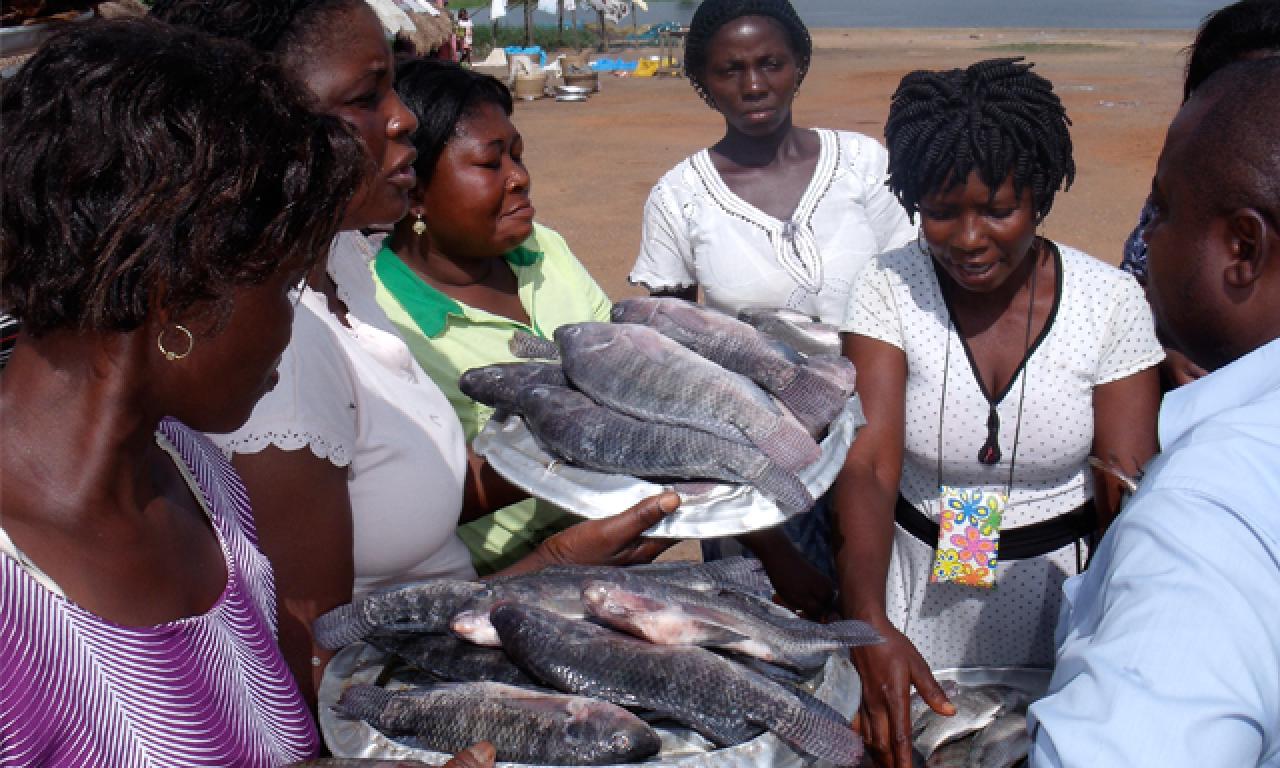
Dave Mills, a senior researcher at WorldFish, was describing the outcomes of a project on governance reform with small-scale fishers in Ghana. This project had empowered women in the community by working to build confidence, capacity, and vision among women to engage in decision-making and by helping challenge underlying and oppressive attitudes towards them. Dave recounted how, at a project review meeting, the village chief proudly exclaimed “What have you done with these women - they have changed!”
Listen to this podcast Download
Recommended publications
- Hen Mpoano, our Coast, our Future. Western Region of Ghana. Building capacity for adapting to a rapidly changing coastal zone: Lessons learned
- Ghana coastal fisheries governance dialogue: Developing options for a legal framework for fisheries co-management in Ghana
Dave Mills, a senior researcher at WorldFish, was describing the outcomes of a project on governance reform with small-scale fishers in Ghana. This project had empowered women in the community by working to build confidence, capacity, and vision among women to engage in decision-making and by helping challenge underlying and oppressive attitudes towards them. Dave recounted how, at a project review meeting, the village chief proudly exclaimed “What have you done with these women - they have changed!” He was delighted they were now active in decision-making and that he now knew what women needed and wanted in his community. This is just one of the many examples of how focussing on gender relations can have a positive impact on peoples’ lives. And they deserve celebration, especially on the International Day of Rural Women. Yet, despite the myriad success stories, the lives of rural women farmers and fishers remain hard.
- Inheritance laws and biased land reforms continue to deny women access to resources.
- School enrolment rates for girls in rural areas are significantly lower than girls or boys in urban areas.
- Women and girls are 50% more likely than men and boys to be chronically hungry, yet spend 20% more time working.
This situation, which persists in so many parts of the world, clearly speaks to deep-rooted problems. To address them, it's becoming increasing clear that our current approaches are inadequate. Simply focusing on ways to improve women's access to the things they need is insufficient. We must work to shift the cultural norms and beliefs that thwart a woman’s ability to learn, work, and successfully control her own life. In particular, that means focusing on what men think and do and working with them to shift their mindsets and attitudes. I'm convinced that gender transformative approaches are the key to deeper change. Attitudes and beliefs determine what actions society takes, whether it is a policy maker drafting gender-biased legislation, a husband keeping his daughter at home, or of a community that only allows men on its governance council. We can only achieve systemic change by working to shift those attitudes, and showing how much better life can be for everyone when we do. Countries that have achieved substantial development progress have focused on developing small-holder agriculture to provide the foundation for subsequent stages of economic development. With 1.3 billion small-holder farmers and landless workers in the world, all of whom can help make development happen, we cannot ignore 559 million of them. Combining investments to improve access by women farmers and fisheries to resources, knowledge and services with gender transformative programs that work to shift social norms and beliefs are essential investments for both governments and development agencies. We must continue our work until, like the village chief in Ghana, leaders of every developing nation can celebrate their success in empowering women and the benefits that will surely follow.